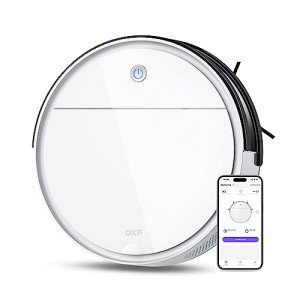Which Robot Vacuum Cleaner Should You Choose? A Comprehensive Guide
In today's busy world, benefit and efficiency are important, and robotic vacuum cleaners have actually become a popular service for keeping homes tidy without the trouble of manual vacuuming. With a variety of models offered, choosing the ideal robot vacuum can be frustrating. This article intends to offer in-depth insights into what to consider when selecting a robot vacuum, its functions, and some often asked questions.
Key Features to Consider
When evaluating different robot vacuum cleaners, numerous essential features can help in making a notified decision. Below are some important aspects to consider:
1. Suction Power
- The suction power is crucial for getting dirt and debris successfully. Try to find robot mop vacuum with adjustable suction settings for various floor types.
2. Navigation Technology
- Advanced models make use of laser mapping and electronic cameras, enabling them to navigate effectively around obstacles and draw up spaces for targeted cleaning.
3. Battery Life
- Think about the length of time the vacuum can operate on a single charge. A longer battery life guarantees more substantial cleaning sessions before requiring to charge.
4. Size and Design
- A compact style permits the robot to tidy under furnishings and in hard-to-reach areas. robot mop and vacuum to guarantee it fits in your home layout.
5. Dustbin Capacity
- Larger dustbins require less regular emptying. Assess just how much particles the model can hold before requiring to be cleared.
6. Smart Features
- Connection alternatives, such as Wi-Fi and app control, enable remote scheduling and monitoring. Voice control capabilities through assistants like Alexa or Google Assistant can likewise enhance functionality.
7. Cost
- Robot vacuums range from budget-friendly to high-end designs, so consider your cleaning requirements and budget when making a decision.
8. Customer Reviews and Warranty
- Research user feedback to understand the strengths and weaknesses of each design. A solid warranty can supply comfort about your purchase.
Contrasts of Popular Robot Vacuum Cleaners
To help in understanding the alternatives available, here are some popular robot vacuum and their features in the form of a contrast table:
| Model | Suction Power | Battery Life | Navigation Technology | Smart Features | Rate Range |
|---|---|---|---|---|---|
| iRobot Roomba i7+ | High | Approximately 75 minutes | Smart mapping | App control, voice control | ₤ 600 - ₤ 800 |
| Neato Botvac D7 | Medium | As much as 120 minutes | Laser-guided | App control, No-Go Lines | ₤ 600 - ₤ 700 |
| Roborock S7 | Really High | As much as 180 minutes | LiDAR Navigation | App control, mop function | ₤ 500 - ₤ 650 |
| Eufy RoboVac 11S | Low | Approximately 100 min | Random navigation | Push-button control | ₤ 250 - ₤ 300 |
| Ecovacs Deebot Ozmo T8 | Medium | Approximately 180 minutes | Smart mapping | App control, voice control | ₤ 600 - ₤ 750 |
Rate varieties and features undergo change, so it's recommended to check the most recent specs before making a purchase.
Pros and Cons of Robot Vacuum Cleaners
Pros
- Time-Saving: Robot vacuum cleaners can automate everyday cleaning tasks, maximizing time for other activities.
- Convenience: Many designs can be controlled via apps, allowing users to schedule cleaning on-the-go.
- Consistency: Regular cleaning sessions can prevent the buildup of dirt and allergens in a home.
- Ease of access: Robot vacuums can reach areas that conventional designs frequently can not, such as under furniture.
Cons
- Restricted Capacity: Most robot vacuums have a smaller sized dustbin compared to conventional vacuum, requiring regular emptying.
- Price: High-end models can be expensive, and budget models may lack necessary functions.
- Surface area Limitations: Some robot vacuums may fight with particular surface areas, such as high-pile carpets.
- Upkeep: Brushes and filters require routine cleaning and replacement to maintain ideal efficiency.
Often Asked Questions (FAQs)
Q1: How do robot vacuum work?Robot vacuums are geared up with sensors and brushes that assist them browse a space while collecting dirt and particles. Their smart mapping technology allows them to produce a design of the home, enabling efficient cleaning patterns.
Q2: Can robot vacuums tidy multiple surfaces?Yes, many robot vacuum cleaners are created to deal with a variety of surface areas, including wood, tile, and low to medium-pile carpets. Nevertheless, some might be less reliable on high-pile carpets.
Q3: How frequently should I run my robot vacuum?It's typically advised to run a robot vacuum a minimum of as soon as a week. However, households with animals or large quantities of foot traffic may gain from everyday cleaning.
Q4: Are robot vacuums worth the investment?If time and convenience are high priorities, a robot vacuum can be a worthwhile financial investment. It automates an essential chore, enabling property owners to focus on other tasks.
Q5: How much sound do robot vacuum make?Many robot vacuums run at a sound level similar to standard vacuums but might differ by model. Research study user examines for noise levels if this is an issue.
Picking the right robot vacuum needs cautious factor to consider of several aspects, consisting of suction power, navigation innovation, and special features. By weighing advantages and disadvantages while comparing popular models, consumers can find the best fit for their cleaning needs. As robot vacuum technology continues to develop, their capabilities and affordability are likely to improve, making them a valuable addition to the modern-day home.

